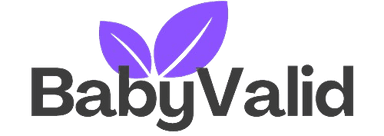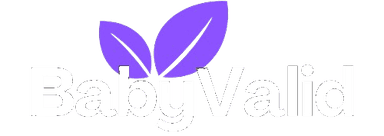~ 4 min read
Preparing for Baby: Essential Tips for Expectant Parents

Expecting a baby is an exciting and transformative time in a person's life. Proper preparation can make this journey smoother and more enjoyable. Here are some essential tips to help you get ready for your new arrival.
Importance of Regular Prenatal Care
Regular prenatal checkups are vital for monitoring the health of both mother and baby. The Health.gov emphasizes the importance of monthly checkups during the first six months and more frequent visits during the last trimester. These appointments help track the baby's development, manage any health issues, and provide essential vaccinations like the whooping cough and flu shots.
Staying Active During Pregnancy
Exercise during pregnancy has numerous benefits for both mother and baby. Contrary to outdated beliefs, moderate-intensity exercise is safe and beneficial. A recent study showed that aerobic and strength exercises performed three to four days a week do not increase the risk of preterm births or low birth weight. Staying active can help manage weight, reduce the risk of gestational diabetes, and prepare the body for labor.
Mental Health Support
Pregnancy can be a time of emotional upheaval, especially if complications arise. Addressing mental health is crucial for expectant parents. According to a review on perinatal mental health, a diagnosis of fetal anomalies can increase the risk of anxiety, depression, and stress. Psychologists play a vital role in fetal care centers, providing assessments and interventions to help parents cope with these challenges.
Prenatal Education
Education is a cornerstone of a healthy pregnancy. Expectant parents benefit from learning about childbirth, infant care, and parenting skills. A systematic review highlighted the need for comprehensive prenatal education, including the involvement of male partners and support from health professionals. These classes should focus on realistic parenting skills and provide opportunities to learn from peers.
Breastfeeding Preparation
Breastfeeding is highly recommended for its numerous health benefits for both mother and baby. Prenatal counseling on breastfeeding can help expectant mothers prepare for this vital aspect of infant care. According to a review listed in the PubMed database, education and support should start during pregnancy and continue postpartum, addressing any concerns or challenges that may arise.
Overcoming Fear of Childbirth
Many expectant parents fear the pain and challenges of childbirth. Prenatal education can help alleviate these fears. A meta-analysis found that structured antenatal education can reduce fear of childbirth, pain intensity during labor, and postpartum depression. High-quality randomized trials are needed to further explore these benefits.
Learning Infant CPR
Learning infant CPR is a crucial skill for new parents. A study evaluating a self-instructional infant CPR kit found significant improvements in knowledge and confidence among expectant parents. This training can be life-saving and should be included in antenatal education.
Conclusion
Preparing for a baby involves more than just setting up a nursery. Regular prenatal care, staying active, addressing mental health, and educating yourself on childbirth and infant care are all essential steps. By following these tips, expectant parents can ensure a healthier and more positive pregnancy experience.
For more detailed guidance, explore resources from reputable health organizations and consult with your healthcare provider for personalized advice.
Sources
-
Health.gov. (n.d.). Have a Healthy Pregnancy. Retrieved from https://health.gov/myhealthfinder/pregnancy/doctor-and-midwife-visits/have-healthy-pregnancy#take-action-tab.
-
Cooper DB, Yang L. Pregnancy And Exercise. 2023 Apr 17. In: StatPearls [Internet]. Treasure Island (FL): StatPearls Publishing; 2024 Jan–. PMID: 28613571.
-
Dempsey, A. G., Chavis, L., Willis, T., Zuk, J., & Cole, J. C. M. (2021). Addressing Perinatal Mental Health Risk. Journal of clinical psychology in medical settings, 28(1), 125–136. https://doi.org/10.1007/s10880-020-09728-2
-
Entsieh, A. A., & Hallström, I. K. (2016). First-time parents' prenatal needs for early parenthood preparation-A systematic review and meta-synthesis of qualitative literature. Midwifery, 39, 1–11. https://doi.org/10.1016/j.midw.2016.04.006
-
Berwick, M., & Louis-Jacques, A. F. (2023). Prenatal Counseling and Preparation for Breastfeeding. Obstetrics and gynecology clinics of North America, 50(3), 549–565. https://doi.org/10.1016/j.ogc.2023.03.007
-
Alizadeh-Dibazari, Z., Abdolalipour, S., & Mirghafourvand, M. (2023). The effect of prenatal education on fear of childbirth, pain intensity during labour and childbirth experience: a scoping review using systematic approach and meta-analysis. BMC pregnancy and childbirth, 23(1), 541. https://doi.org/10.1186/s12884-023-05867-0
-
Barry M. (2015). An evaluation of expectant parents knowledge, satisfaction and use of a self-instructional infant CPR kit. Midwifery, 31(8), 805–810. https://doi.org/10.1016/j.midw.2015.04.002
#Pregnancy #PrenatalCare #MentalHealth #Parenting #Breastfeeding #ChildbirthEducation #InfantCPR
Note: Always consult with your healthcare provider for personalized advice and support during your pregnancy.
Related Articles

How to Choose the Right Baby Gear
A comprehensive guide to selecting safe and beneficial baby products for your little one.

Baby Registry Checklist: What You Really Need
Discover essential items for your baby registry, focusing on safety, health, and natural materials. Learn what you truly need and what to avoid.

How to Create a Birth Plan
Learn how to create a personalized birth plan that communicates your preferences and prepares you for labor and delivery.

